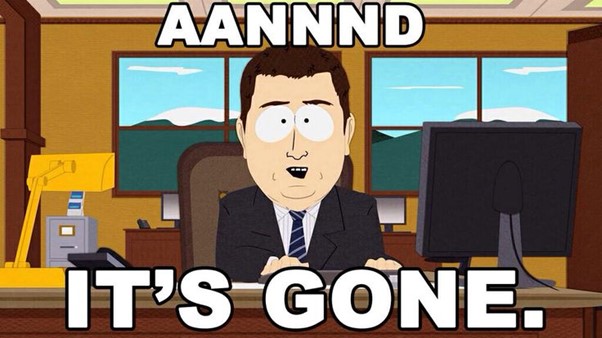My Investment Principles
What I learned from losing 70% of my portfolio – and why that was the best thing that could have happened.
How It All Started
I got lucky. Not the kind of lucky that makes you rich overnight – but the kind of lucky that teaches you something before the stakes get too high.
It was the late 1990s, I was in my early 20s, and the dot-com bubble was in full swing. I didn’t know much about investing, but I wanted in. My dad – encouraging and generous – helped me open my first brokerage account and transferred 10,000 Deutsche Marks into it. His only rule: I could only use the money to buy stocks. Everything else was up to me.
I had no idea what I was doing. I bought a bunch of stocks based on hype, not research. The only company I recognized was Nokia. At first, my account balance kept climbing, and I thought: “This is easy. I must be naturally good at this.” Spoiler: I wasn’t.
When the dot-com bubble burst in early 2000, my account value melted like ice cream in the sun. I ended up losing 70% of the portfolio. But I didn’t give up – and that’s when the real education started.

Why Losing Early Was a Gift
Looking back, that early loss was the most valuable lesson I’ve ever learned about investing. I realized just how little I knew – and how dangerous overconfidence can be. Since then, I’ve spent decades learning, reflecting, and refining my investment approach. And I’m still learning.
What follows is not a blueprint for guaranteed success. It’s simply a set of principles that I try to live by as an investor. They’ve helped me weather market cycles, stay grounded, and grow wealth steadily over time.
My Core Investment Principles
- Start Early
Time is your greatest ally. Compounding works best when it has time to do its magic. The earlier you start, the less you need to do later.
- Stay in the Game
This is not a get-rich-quick scheme. It’s a long game of compounding, patience, and resilience. Wealth is built one step at a time – not through hype or shortcuts.
- Harvest Risk Premia
Long-term returns come from bearing risk. You’re getting paid for being exposed to uncertainty – whether that’s through equities, credit, or other risk premia. Accept and manage the volatility; that’s the price of admission.
- Control What You Can
You can’t predict the market. You can’t control the economy. But you can control your savings rate, your asset allocation, your behavior, and your ability to learn. Focus on those.
- Consistency Beats Brilliance
You don’t need to be a genius. You need to be consistent. Show up, keep going, and don’t derail your progress with avoidable mistakes.
- Respect the Downside
Market drops are part of the process. Stocks take the stairs up and the elevator down. You’ll face drawdowns – don’t panic, don’t overreact, and don’t let fear dictate your decisions.
- Know Yourself
Your personality shapes your investment style. Are you a risk-taker or a cautious planner? Do you prefer simplicity or control? Build a strategy that fits you – and stick with it.
- Be Humble
Markets are complex. You’ll never know everything. Be ready to update your beliefs when new information comes along. Avoid dogma. Stay curious.
- Avoid the Big Mistakes
You don’t need to do everything right. You just need to avoid blowing up. Greed, ignorance, and ego are a dangerous trio. Manage your risk. Stay diversified. Don’t overleverage.
- Diversify Your Income Sources
Don’t rely on one stream of wealth-building. Here’s what I focus on:
- Investment returns from public and private markets
- Returns from systematic and active trading
- Income from employment (salary, bonuses, stock awards)
- Entrepreneurial ventures
The more streams you build, the more resilient your financial foundation becomes.
Personal Reflection: What Works for Me
I’m not a full-time trader or entrepreneur. I’m a professional with a job and monthly paycheck – and I value the consistency that brings. My capital-building journey is powered by steady income, disciplined investing, and gradual improvement.
I accept that drawdowns will happen. I don’t try to time the market or chase hype. I focus on what I can control: saving, learning, rebalancing, and staying invested. That’s my edge – and it can be yours too.
Final Thought
If you’re early in your investment journey, don’t worry about finding the perfect strategy. Focus on building good habits. Avoid the obvious mistakes. Keep learning. Stay consistent.
And when things get hard – as they inevitably will – remember this: you’re getting paid to endure discomfort. That’s where the returns come from.
As I like to remind myself, quoting the famous philosopher Ice Cube:
“Do not complain about what you didn’t get from the work you didn’t put in.”
Let’s keep putting in the work!

